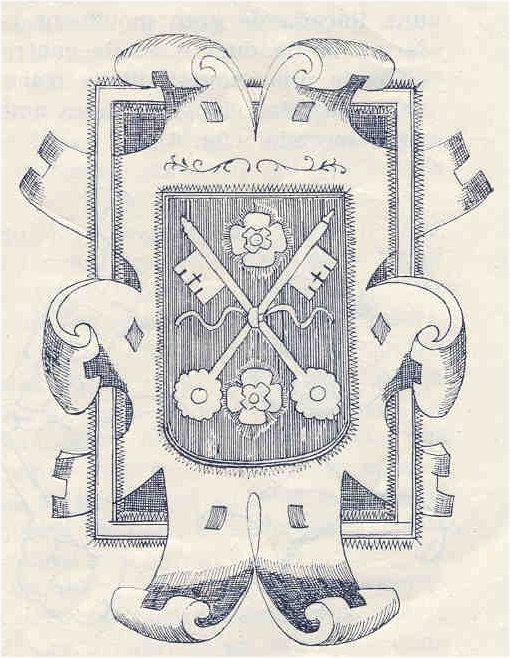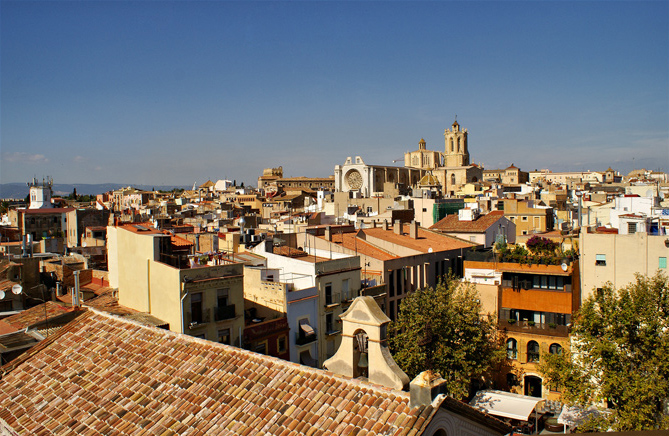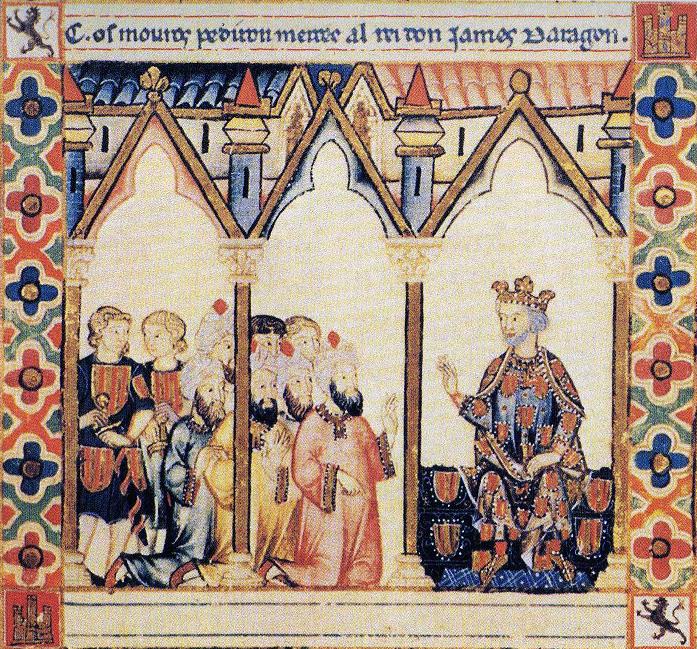|
Salou
Salou () is a municipality of the ''comarca'' of Tarragonès, in the province of Tarragona, in Catalonia, Spain. The city is approximately 10 km from Tarragona and Reus on the Costa Daurada and 112 km from Barcelona. Founded by the Greeks in the 6th century B.C., the coastal town was a notable commercial port during medieval and modern ages. Throughout the 20th century, Salou became an important European tourist attraction. Aside from its string of beaches interrupted by rocky coves, and its landscaped promenade, one of its main attractions is the PortAventura World resort. The Dutch movie ''Costa!'' and the television series with the same title were both filmed in Salou. History Used as a port by Greeks (who named it ''Salauris'') and Romans, it appeared again in an important historic event, when in 1229 the fleet of James I of Aragon departed from the port of Salou to conquer the Balearic Islands, thus creating the Kingdom of Majorca. In 1286 Alfons III of Aragon al ... [...More Info...] [...Related Items...] OR: [Wikipedia] [Google] [Baidu] |
Vila-seca
Vila-seca (; literally 'Dry-town') is a municipality of the ''comarca'' of Tarragonès, in the province of Tarragona, in Catalonia, Spain. The historical name was ''Vila-seca de Solcina'' and since the 80's known as ''Vila-seca i Salou'' until Salou was segregated from Vila-seca on 1989, however the municipality includes the urban areas of La Plana and La Pineda. Vila-seca has a large petrochemical complex shared with Tarragona and La Canonja, including Repsol complex in El Morell makes one of the greatest petrochemical areas of Europe like Ludwigshafen am Rhein. History Different remains show that the city was populated during the times of Ancient Rome. The population settled in Vila-seca after the reconquest in 1162 when King Alfonso II of Aragon gave these lands to Ramón de Olzina. Its donation to this family was confirmed by King Peter II of Aragon in 1208. During the Middle Ages, there was another town known as Vilaseca del Comú, which neighboured Vila-seca as owned by t ... [...More Info...] [...Related Items...] OR: [Wikipedia] [Google] [Baidu] |
PortAventura World
PortAventura World is an entertainment resort in Salou and Vila-seca, Tarragona, on the Costa Daurada in Catalonia, Spain. It was built around the PortAventura Park theme park, which attracts around 3.5 million visitors per year, making it the most visited theme park in Spain and the sixth most visited theme park in Europe. The resort includes a second theme park, Ferrari Land, since 2017 and also includes PortAventura Caribe Aquatic Park, five hotels, a convention centre and an RV park. It is the biggest resort in the south of Europe which attracts around five million visitors per year. Reus Airport lies within 15 minutes driving distance and Barcelona Airport within one hour. The train station ''Salou - Port Aventura'' is 750m from the resort entrance, and is served by line R17 trains to Barcelona and Tarragona. History When Port Aventura opened in 1995 in Salou, The Tussauds Group owned 40.0% of the park while La Caixa had 33.2%, Anheuser-Busch had 19.9%, and FECSA had 6.7%. ... [...More Info...] [...Related Items...] OR: [Wikipedia] [Google] [Baidu] |
Reus
Reus () is the capital of Baix Camp, in the province of Tarragona, in Catalonia, Spain. The area has always been an important producer of wines and spirits, and gained continental importance at the time of the Phylloxera plague. Nowadays it is known for its commercial activity, for being a centre for rock-climbing and as the birthplace of architect Antoni Gaudí. Name The origin of the name is a source of discussion. One of the theories is that Reus comes from the Latin word used to describe convict prisoners (''reus''), and as such, it would be a Roman penitentiary. Currently, the most accepted theory is that the name has Celtic roots, from the root ''red'' that originated the name ''redis'' (or ''reddis''), that would approximately mean ''place in the way'' / ''place in the roads'', or said alternatively, an inhabited place in a cross-road. History Foundation and early history Around 1150 Robert d'Aguiló repopulated the region of Reus, after receiving it on 3 June 1154. ... [...More Info...] [...Related Items...] OR: [Wikipedia] [Google] [Baidu] |
Tarragona (province)
Tarragona (, ) is a province of eastern Spain, in the southern part of the autonomous community of Catalonia. It is bordered by the provinces of Castellón, Teruel, Zaragoza, Lérida and Barcelona and by the Mediterranean Sea. The province's population is 795,902 (2018), about one fifth of whom live in the capital, Tarragona. Some of the larger cities and towns in Tarragona province include Reus, Salou, El Vendrell, Tortosa, Valls, Amposta. This province has 183 municipalities. The province includes several World Heritage Sites and is a popular tourist destination. There are Roman Catholic cathedrals in Tarragona and Tortosa. History After the Umayyad conquest of Hispania in the late eighth century, this part of Spain came under the control of the Umayyad Caliphate and most of the Iberian peninsula was known as Al-Andalus, and was dominated by Muslim rulers. Abd al-Rahman I founded an independent dynasty that survived in the region until the 11th century. After the Muslim co ... [...More Info...] [...Related Items...] OR: [Wikipedia] [Google] [Baidu] |
Costa!
''Costa!'' is a 2001 Dutch romantic comedy film directed by soap producer Johan Nijenhuis. It was the first movie that used several famous Dutch soap stars. Other movies that used soap actors, were '' Volle maan'' and ''Honeyz''. The television series with the same title was based on the movie. It had the same cast members (with several expansions). Cast * Georgina Verbaan - Janet * Daan Schuurmans - Rens * Katja Schuurman - Frida * Kurt Rogiers - Tommy * John Wijdenbosch - Björn * Michiel Huisman - Bart * Peggy Jane de Schepper - Angela * Anniek Pheifer - Maureen * Nadja Hüpscher - Joyce * Patty Brard - Mother of Janet and Angela Plot Janet is a lonely girl who is forced to go on holidays with her sister Angela and her arrogant friends, Maureen and Joyce. When they arrive in Spain, Angela and her friends take off to the beach while Janet has to carry all the luggage to their apartment. That night, Angela, Joyce and Maureen decide to go out and end up in the popular n ... [...More Info...] [...Related Items...] OR: [Wikipedia] [Google] [Baidu] |
Tarragonès
Tarragonès () is a comarca (county) in Catalonia, Spain. It is one of the three comarques formed in the 1936 comarcal division of Camp de Tarragona. It lies on the Mediterranean coast, between the comarques of Baix Penedès to the northeast and Baix Camp to the south. Over 60% of the population live in the capital, Tarragona. Transport An excellent road network connects the villages of the comarca. The AP-7/E-15 motorway cuts across the region, following the coastline. The port of Tarragona is an important Mediterranean transit point. There are yacht marinas in Tarragona and Torredembarra, with a smaller one at Salou. There is a rail connection with the cities of Barcelona and Valencia Valencia ( va, València) is the capital of the Autonomous communities of Spain, autonomous community of Valencian Community, Valencia and the Municipalities of Spain, third-most populated municipality in Spain, with 791,413 inhabitants. It is .... Municipalities References Exter ... [...More Info...] [...Related Items...] OR: [Wikipedia] [Google] [Baidu] |
Municipalities Of Catalonia
Catalonia is (as of 2018) divided into 947 Municipalities of Spain, municipalities. Each municipality typically represents one significant urban settlement, of any size from village to city, with its surrounding land. This is not always the case, though. Many municipalities have merged as a result of rural depopulation or simply for greater efficiency. Some large urban areas, for example Barcelona, consist of more than one municipality, each of which previously held a separate settlement. The Catalan government encourages mergers of very small municipalities; its "Report on the revision of Catalonia's territorial organisation model" (the ""), published in 2000 but not yet implemented, recommends many such mergers. Larger municipalities may sometimes grant the status of ''minor local entity, decentralised municipal entity'' ( ca, EMD, es, EATIM) to one or more of its settlements, for more effective provision of services or to substitute for its previous status as a separate mun ... [...More Info...] [...Related Items...] OR: [Wikipedia] [Google] [Baidu] |
James I Of Aragon
James I the Conqueror ( es, Jaime el Conquistador, ca, Jaume el Conqueridor; 2 February 1208 – 27 July 1276) was King of Aragon and Lord of Montpellier from 1213 to 1276; King of Majorca from 1231 to 1276; and Valencia from 1238 to 1276 and Count of Barcelona. His long reign—the longest of any Iberian monarch—saw the expansion of the Crown of Aragon in three directions: Languedoc to the north, the Balearic Islands to the southeast, and Valencia to the south. By a treaty with Louis IX of France, he achieved the renunciation of any possible claim of French suzerainty over the County of Barcelona and the other Catalan counties, while he renounced northward expansion and taking back the once Catalan territories in Occitania and vassal counties loyal to the County of Barcelona, lands that were lost by his father Peter II of Aragon in the Battle of Muret during the Albigensian Crusade and annexed by the Kingdom of France, and then decided to turn south. His great part i ... [...More Info...] [...Related Items...] OR: [Wikipedia] [Google] [Baidu] |
Costa Daurada
The Costa Daurada (, es, Costa Dorada, meaning in English "Golden Coast") is an area on the coast of Catalonia, Spain, between Cunit and Alcanar on the Mediterranean Sea. Its traditional banks are the deltas of the Foix and Ebro rivers, although it mainly refers to the entire province of Tarragona. To the north it borders the Garraf Massif and it borders the Costa del Azahar to the south. Places of interest include the El Vendrell beaches, the town of Roc de San Gaieta, the Roman Arch of Bará, the remains of Tarraco, declared a World Heritage Site and as well as several small towns or places such as Sant Carles de la Ràpita, with one of the best fishing ports in this entire coastal sector. Inlands, the walled town of Montblanc and the Poblet Abbey stand out, where various kings of the Crown of Aragon lie. Another tourist attraction on the Costa Dorada is the PortAventura World amusement park. Etymology Costa Daurada, literally, the Golden Coast, takes its name from the c ... [...More Info...] [...Related Items...] OR: [Wikipedia] [Google] [Baidu] |
Tarragona
Tarragona (, ; Phoenician: ''Tarqon''; la, Tarraco) is a port city located in northeast Spain on the Costa Daurada by the Mediterranean Sea. Founded before the fifth century BC, it is the capital of the Province of Tarragona, and part of Tarragonès and Catalonia. Geographically, it is bordered on the north by the Province of Barcelona and the Province of Lleida. The city has a population of 201,199 (2014). History Origins One Catalan legend holds that Tarragona was named for ''Tarraho'', eldest son of Tubal in c. 2407 BC; another (derived from Strabo and Megasthenes) attributes the name to ' Tearcon the Ethiopian', a seventh-century BC pharaoh who campaigned in Spain. The real founding date of Tarragona is unknown. The city may have begun as an Iberian town called or , named for the Iberian tribe of the region, the Cossetans, though the identification of Tarragona with Kesse is not certain. William Smith suggests that the city was probably founded by the Phoenicians, w ... [...More Info...] [...Related Items...] OR: [Wikipedia] [Google] [Baidu] |
Generalitat Of Catalonia
The Generalitat de Catalunya (; oc, label=Aranese, Generalitat de Catalonha; es, Generalidad de Cataluña), or the Government of Catalonia, is the institutional system by which Catalonia politically organizes its self-government. It is formed by the Parliament of Catalonia, the Presidency of the Generalitat de Catalunya, and the Executive Council of Catalonia (also very often referred to as ''Govern'', "Government"). Its origins are in the 13th century when permanent councils of deputies (deputations) were created to rule administration of the Courts of the different realms that formed the Crown of Aragon which gave birth to the Deputation of the General of the Principality of Catalonia (1359), the Deputation of the General of the Kingdom of Aragon (1362) and the Deputation of the General of the Kingdom of Valencia (1412). The modern Generalitat was established in 1931, as the institution of self-government of Catalonia within the Spanish Republic. Remaining in exile after t ... [...More Info...] [...Related Items...] OR: [Wikipedia] [Google] [Baidu] |
Greek People
The Greeks or Hellenes (; el, Έλληνες, ''Éllines'' ) are an ethnic group and nation indigenous to the Eastern Mediterranean and the Black Sea regions, namely Greece, Cyprus, Albania, Italy, Turkey, Egypt, and, to a lesser extent, other countries surrounding the Mediterranean Sea. They also form a significant diaspora (), with Greek communities established around the world.. Greek colonies and communities have been historically established on the shores of the Mediterranean Sea and Black Sea, but the Greek people themselves have always been centered on the Aegean and Ionian seas, where the Greek language has been spoken since the Bronze Age.. Until the early 20th century, Greeks were distributed between the Greek peninsula, the western coast of Asia Minor, the Black Sea coast, Cappadocia in central Anatolia, Egypt, the Balkans, Cyprus, and Constantinople. Many of these regions coincided to a large extent with the borders of the Byzantine Empire of the late 11th century ... [...More Info...] [...Related Items...] OR: [Wikipedia] [Google] [Baidu] |
.jpg)






